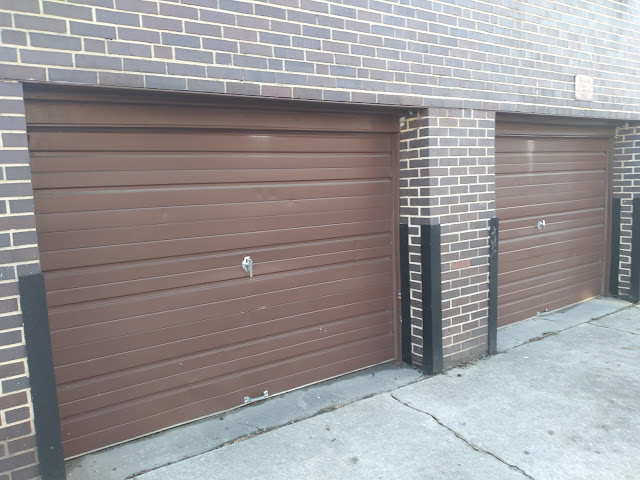- Is the unit attached to another unit, or is it a detached garage?
- Is it structurally sound, with four walls all sealed properly and drainage away from the unit?
- Is there mold, dampness, oil spills or any other mysterious liquids present in the unit?
- Is the garage door manual or electric? Are the rollers securely attached to the tracks?
- Does the unit have electricity or not? If so, is it included with the rent or not?
- Are all electric outlets safely and securely installed?
- Does the unit have a concrete, wood, or dirt floor? Is the floor smooth or cracked?
- Does the unit have any windows or air circulation?
- Are there any appliances or applications for them, such as a washer/dryer hookup?
- Are the exterior, roof and gutters all fine?
- Is the unit free or any insects, rodents, or small animals living in it?
Be mindful of the neighborhood and don't draw too much attention to your business. This ain't no party place. Any illegal activity or operations run out of the garage unit risks violating the lease. So, no bootlegging moonshine like it's the prohibition-era 1930's... Again, check your local state laws. Be aware of rules regarding garage sales or trying to run a brick-and-mortar store out of the space. Check the property records in the city and the zoning ordinances for the area.. It is probably best to sell online, but you may be able to get away with a once a season "pop-up" shop. It really depends on the location and neighborhood.
Once you have settled on a desirable spot, it is time to sign a lease. This tends to be different from a residential lease in that it is more short-term. While residential leases tend to last at least year, garage leases usually go on a month-by-month, season-by-season, even weekly cycles! Work out the arrangement best for you with the landlord. Sometimes, a shorter lease can work in your favor. You could rent for a few months then move your operation downtown once your business grows. Or, if a desirable unit isn't available for three more months, you could secure the lease on it while pursuing another unit to use in the meantime. Keep in mind that in urban areas, garages have a high turnover rate.
Now it's time to set up shop! Get the keys to your unit and start sweeping, cleaning and installing equipment. Get everything organized and toast to your future success!






No comments:
Post a Comment